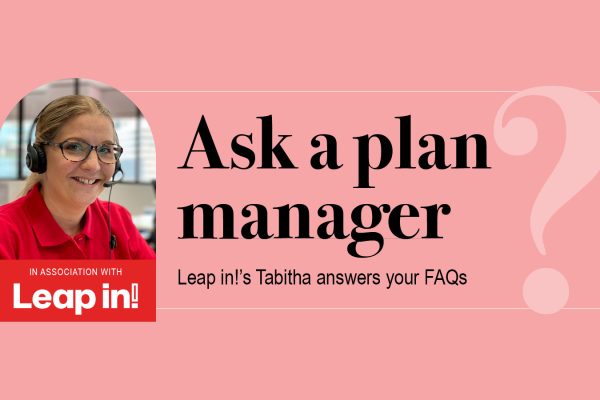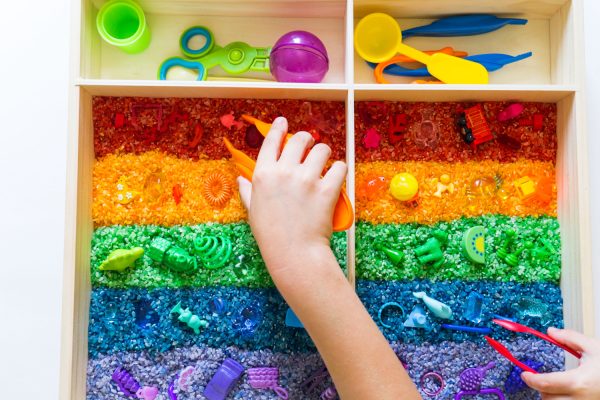
How do autistic girls differ to autistic boys
By Rebekah Devlin
Psychologist and one of the world’s foremost clinicians on autism, Tony Attwood, explains the horrific mental cost of misdiagnosis and how you can encourage your daughter be her authentic self.
How Do Autistic Girls Differ To Autistic Boys?
We’re only just discovering how to adapt to Autism and we find that boys and girls have the same core characteristics, but may adapt to it in a different way. One of the ways that the girls will adapt is realise ‘I’m not good at socialising, but I like socialising, and I want to learn, so I’ll watch. I don’t want to make a mistake, I don’t want to be seen making an error, so I’ll observe people, I will analyse them, I will copy them, I will create a mask.
I will fake it ‘til I make it.
To such an extent that the teacher has no idea of the amount of mental effort that goes into socialising – the effort and energy is phenomenal, and it’s suppressed, in terms of agitation, and then released at home. So parents see almost a different character – what I call Dr Jekyll and Mr Hyde. So often the girls, I would say, are more creative and intelligent in how they accommodate autism, by learning, often by personal experience, how to socialise.
Considering autistic boys, their adaptation can be total withdrawal, becoming isolated, not engaging with others.
And some, unfortunately in teenage years, become a recluse in their bedroom – (because) it’s safe. But when they engage socially, they make mistakes and unfortunately their reaction can be agitation, anger and be quite abrasive to others.
One of the things that the girls will do is avidly apologise ‘oh sorry, I didn’t mean to hurt your feelings’ and want everyone to be happy, to a fault to a certain extent. But the boys will try to socialise, it doesn’t work and ‘I don’t know what I’m doing wrong and the fault is in other people, not me’, so they can go into attack mode.
Why Are Girls So Under-Diagnosed?
We are learning about autism all the time and for doctors – be that psychiatrists, GPs, psychologists – it depends on when their training occurred. And if they trained a number of decades ago, they would not be aware of the latest developments on describing autism in girls and women. So there can be a problem of obsolete information, and because the person in front of that clinician doesn’t present in the “boy style” then ‘oh, they’re not autistic’.
An example is eye contact.
Doctors say ‘oh she gave me such a good eye contact’. Well, it’s a bit like learning to read. Just because somebody looks at the page, doesn’t mean to say they can read the words. Just because she looked at your face, doesn’t mean to say she reads all your emotions.
So you have to move away from the conventional, withdrawn, classically-autistic child and realise someone with intelligence and creativity is trying to accommodate those difficulties.
And also, autistic girls in particular are great with adults, it’s their peers that are the problem.
What Is Masking?
What an autistic girl is likely to do is identify who is popular and think ‘I would like to be popular – what do they do, how do they use their gestures, what do they talk about, what did they wear?’ And so the autistic girl becomes a psychologist and analyses people, personality and social behaviour.
And so what she’s doing is choosing someone as a guide, in a way, of how to be, and becomes that person – it’s acting, it’s acting neurotypical. It is a brief ‘cure’ for autism, but my concern as a clinician, is that it is at horrendous cost.
Why Is It Harmful?
With masking, superficially, the person is successful, has friends. It’s also a way in camouflaging your autism, imitating others. It’s being included and avoiding being bullied and teased because you’re part of the group. However, you’re not the authentic self. You become the person necessary for the situation, and it’s absolutely exhausting.
And that energy depletion and lack of authenticity often leads to depression and psychological issues in adolescence. What I do as a clinician is encourage, especially teenage girls, to be the authentic self.
With my friend and colleague Michelle Garnett, we have a program that we call for autistic teenagers “Being me”. (We explain that) It’s OK to be you. Explain yourself, don’t camouflage who you are. Actually be there, and say ‘I’m the sort of person who’ rather than become someone else who’s not you.
Are Autism And Anxiety Linked?
About 85 per cent of autistic individuals have problems every day with anxiety. Not all have an anxiety disorder in the strength of expression, but it does affect their quality of life.
There’s also round about 70%, especially in the teenager years, who have signs of depression. And some will have signs of intense emotions, meltdown, refuse to comply with the requests etc. So emotion, perception and regulation is a major concern and it can lead to the diagnosis of secondary conditions – which sometimes I find the anxiety or the depression or the anger is of far greater concern.
Want to learn more? Tony and Michelle run autism workshops through Attwood and Garnett Events on various subjects, including autistic girls. Head to www.attwoodandgarnettevents.com for more info.
Trust your gut and make them listen
When it comes to diagnosis, mother does indeed know best.
Tony Attwood has called on medical professionals to be less dismissive of parental concerns, an in particular, “listen to the mothers”.
“Often a mother’s concerns are interpreted as neuroticism and overprotective. But it’s a cry for help. Mum notices things that other people won’t notice,” he says.
“Mums know – mums see behind the mask, they see the effort that goes into it and mum has to do the repairing when it goes wrong. And what you have to repair, you’re thinking ‘I shouldn’t have to repair this, you should know this’.
He says children often act very differently in a clinic setting to how they do at home, or in crowded and busy environments.
“So as parents, you talk to all these professionals (who say) ‘no, no, no’ (it’s not autism) and you are wasting years trying to find someone who takes you seriously.”
He encouraged parents to video as many behaviours as possible, as well as come prepared, with notes, if necessary, of differences and missed development milestones. And don’t be afraid to push for an assessment or seek a second opinion.
PRACTICAL HELP and insights for parents –
With 50 years’ experience, Professor Tony Attwood is considered a world authority on autism. Together with Tony, Source Kids has produced a series of videos covering a variety of key topics including What to do during a meltdown, When to tell your child about their diagnosis, How to find your child allies at school, Strategies to help build your child’s emotional awareness and Identifying the signs of anxiety.
To watch, head to https://sourcekids.com.au/tony-attwood-in-conversation/






